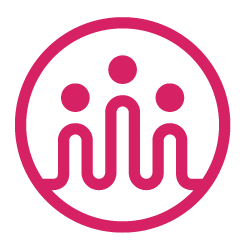The Oxygen Mask Principle
The analogy of the oxygen mask on airplanes is fitting here. You’re instructed to put on your mask first before helping others. This isn’t selfish; it’s practical. If you’re incapacitated, you can’t help anyone else. The same principle applies in caring for a child with an addiction. Self-care isn’t a luxury; it’s a necessity.
Simple Self-Care Strategies
Here are some ideas on where to take your self-care.
1. Prioritizing Personal Needs
Recognize that caring for your physical and emotional well-being is a necessity.
Time for Yourself
It might feel impossible, but carving out time for yourself is essential. Engage in activities that rejuvenate you—reading, gardening, or sitting quietly for a few minutes each day. Remember, recharging your batteries isn’t selfish; it’s essential.
Find Joy and Relaxation
Engage in activities that uplift you. Whether reading, gardening, or a hobby, make time for things that bring you joy and relaxation.
Balancing Act
Remember, finding a balance between supporting your child and tending to your own needs is crucial for long-term emotional stability.
2. Managing Stress and Anxiety
Identify Stressors
Everyday stressors include constant worry about your child’s safety and feeling guilty. Recognizing these can help in addressing them more effectively.
Setting Boundaries
It’s okay to say no. Setting healthy boundaries with your child and others is not an act of rejection but self-preservation. It’s important to delineate where your responsibilities end and where self-care begins.
Stress-Relief Techniques
Incorporate relaxation exercises like mindfulness, meditation, or deep breathing into your daily routine. These practices can significantly reduce stress levels.
Seek Support
Don’t hesitate to lean on friends, family, or mental health professionals. Sharing your burden can lighten it.
3. Nurturing Relationships and Social Supports
Stay Connected
Maintain strong ties with friends and family. These relationships can provide emotional support and a sense of normalcy.
Find Your Community
Consider joining support groups, either online or in person. Connecting with others in similar situations can be incredibly validating and helpful.
Social Activities
Engage in group activities or hobbies that encourage social interaction and provide a break from your caregiving role.
Participate in a Church Community
It is always a good decision to participate in the Church community. Not only do you come to pray together, but you also have the opportunity to interact with a wide range of people who may be going through a situation similar to yours. As a rule, the Church has many different activities, including those for people facing addiction.
4. Practicing Self-Compassion and Forgiveness
Be Kind to Yourself
Understand that it’s okay to struggle and feel overwhelmed. Practice self-compassion by acknowledging your efforts and the challenges you face.
Let Go of Self-Criticism
Replace self-criticism with a focus on your dedication and love for your child. Remember, perfection is not the goal; perseverance is.
Embrace Your Emotions
Allow yourself to feel and express your emotions. Seeking support when needed is a sign of strength, not weakness.
Celebrating Small Victories
Small achievements can go unnoticed in the overwhelming shadow of addiction. Acknowledge and celebrate these moments. They are reminders of the progress being made, however incremental.
Pray Daily
If you are a believer, and even better if your whole family are believers, then great. You have a powerful tool in your difficulties – God’s grace. Pray every day, entrust all your troubles to God. Remember that family unity is greatly strengthened by common prayer.
5. Maintaining a Healthy Lifestyle
Physical Health
Regular exercise, a balanced diet, and enough sleep can significantly boost your mental and physical health.
Wellness Resources
Explore resources for healthy living, including meal planning, exercise routines, and relaxation techniques. Prioritizing your health is integral to being there for your child.
6. Seeking Professional Help When Needed
Professional Support
If self-care strategies are not enough, seeking professional help is crucial. Therapists or counselors specializing in addiction can offer valuable support and guidance.
Finding the Right Help
Use resources to find reputable professionals experienced in helping parents of addicted children.
Openness to Help
Recognize when you need external support and be open to seeking it. It’s a crucial step in managing your well-being and providing the best support for your child.
The Ripple Effect of Self-Care
Practicing self-care has a ripple effect. A healthier, more balanced means a more effective, empathetic, and resilient caregiver. It’s about maintaining your strength to be the anchor your child needs. This balance isn’t easy, but it’s vital.







